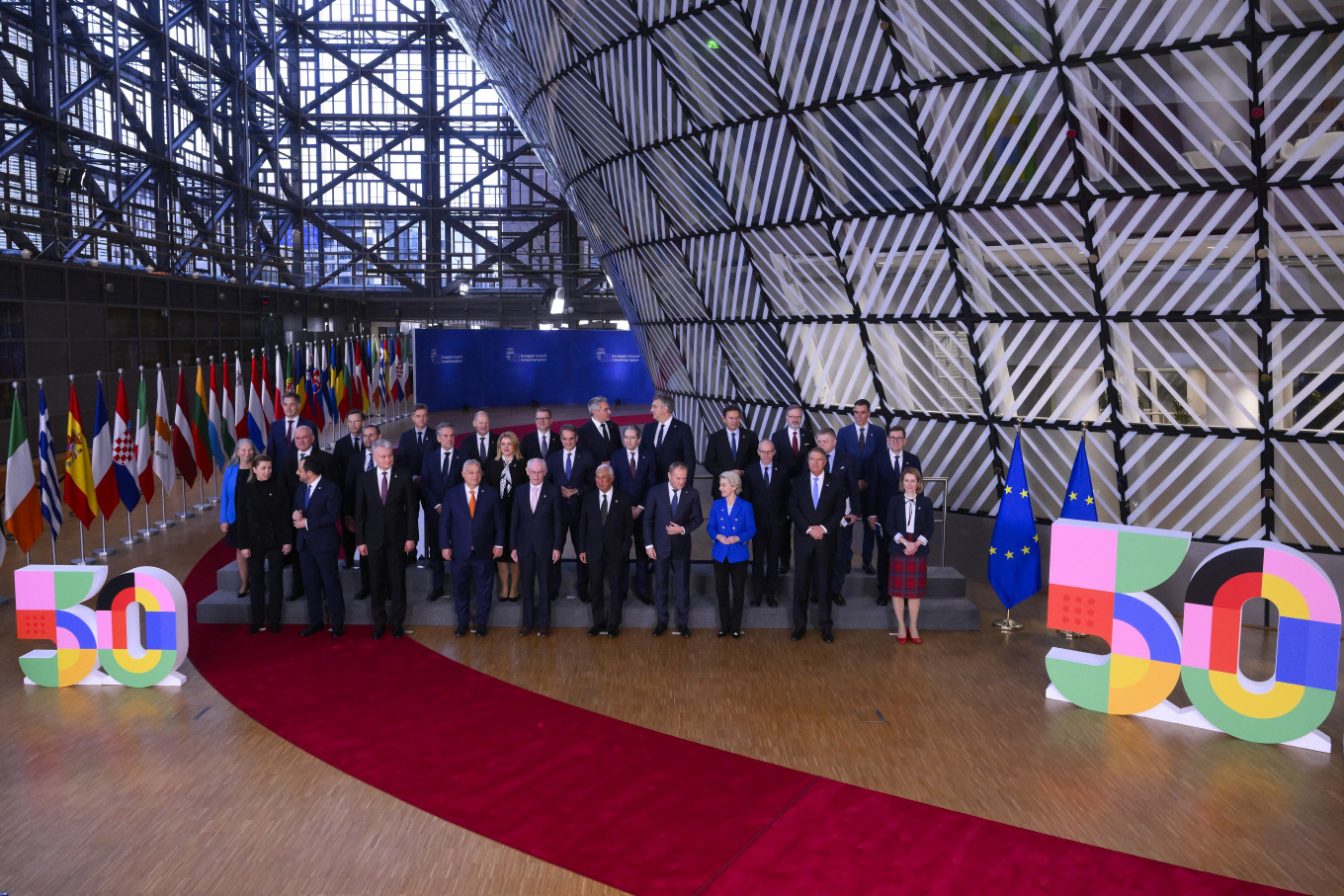Popular Reads
Top Results
Can't find what you're looking for?
View all search resultsPopular Reads
Top Results
Can't find what you're looking for?
View all search resultsWhat China can teach Europe about geopolitical independence
The transatlantic alliance appears to be coming apart at the seams, meaning Europe will need to quickly develop a strategy for harnessing geopolitical hard power.
Change text size
Gift Premium Articles
to Anyone
T
he transatlantic alliance appears to be coming apart at the seams, meaning Europe will need to quickly develop a strategy for harnessing geopolitical hard power. The continent could look to China for tips on how to achieve this.
The first step is enhancing defensive capabilities.
In the early 1990s, China’s leadership launched a major modernization of its military. The World Bank estimates Chinese defense spending rose from around US$12 billion in 1993 to roughly $296 billion in 2023 – an annual growth rate of over 11 percent per year compared to about 3.5 percent in the United States over the same period.
Consequently, China now runs the world’s largest naval force by number of ships, and Beijing has also developed modern missile and drone systems, including hypersonic missiles, the world’s most advanced missile systems.
The European Union and United Kingdom are already set to increase their military spending significantly now that the US has paused its support for Ukraine’s fight against Russia.
British Prime Minister Keir Starmer said on Feb. 25 that the UK would seek to increase defense spending to 3 percent of gross domestic product.
Friedrich Merz, Germany’s likely next chancellor, has also emphasized his willingness to significantly increase defense spending. He floated the idea of an emergency defense fund of 200 billion euros ($213.9 billion) on top of an existing 100-billion-euro fund.
On Tuesday, the European Commission proposed joint borrowing totaling 150 billion euros as part of an 800-billion-euro effort to increase the bloc's defense capabilities.
But Europe may need to think much bigger, because even with these additional funds, it will take Europe many years – and potentially decades – to rebuild its military.
For example, it would take Germany until 2038 to reach the level of combat aircraft production it had 20 years ago, and until 2121 to achieve a comparable increase in artillery howitzer production, according to Kiel Institute forecasts.
And simply spending more will only help so much because European arms manufacturers will eventually hit capacity limits.
Another vulnerability Europe needs to address is its dependence on fossil fuels.
The Russian invasion of Ukraine in 2022 showed how natural gas could be used as a weapon. Since then, Europe has weaned itself off Russian pipeline gas and switched to LNG. But much of this is imported from the US, so Europe has essentially traded one dependency for another.
And it is a potentially risky dependency, as all signs suggest US President Donald Trump would be willing to use gas as a coercive tool. So given new geopolitical realities, Europe's green transition needs to be accelerated.
If China's experience is anything to go by, speeding up the energy transition could help Europe boost both its lackluster economic growth and geopolitical power. China has become the world’s biggest investor in renewable energy and nuclear power, two technologies that have reduced its dependence on fossil fuel imports from potential geopolitical rivals.
Carbon Brief recently concluded that China's total investment in solar energy, electric vehicles and batteries represented 10 percent of the country's GDP in 2024, and it noted that these major green sectors grew three times as fast as the broader Chinese economy in 2024.
Europe is already seeing some cost benefits from investing in renewables.
According to estimates from energy think-tank Ember, rising energy production from renewables has cut the EU's imported natural gas bill by 53 billion euros over the last five years. In the UK, the "net-zero economy" (for example renewable energy and green finance) grew some three times the rate of the economy overall in 2024, the Confederation of British Industry said.
Finally, the EU could learn to be a bit more strategic when creating and enforcing regulations, something China has arguably done in recent decades.
While Europe would likely not seek to be as forceful as China has been in this area, the bloc has regulatory powers that it can unleash in a more targeted way to project geopolitical strength.
Europe’s General Data Protection Regulation (GDPR) and Digital Services Act (DSA) have already demonstrated that the EU can pass laws and regulations that affect companies everywhere in the world.
In particular, the DSA, which seeks to regulate social media platforms, has the potential to be a major thorn in the side of US tech companies since violations can result in penalties of up to 6 percent of global income.
Given the new geopolitical realities, the EU may increasingly find that it needs to use its regulatory power as a bargaining chip in the face of trade or security threats.
These types of hardball tactics may not come naturally to Europe, but given that other major powers do not appear to have such sensitivities, it may be time for Europe to rid itself of them as well.
---
The writer is an investment strategist at Panmure Liberum, the UK's largest independent investment bank. The views expressed are personal.











